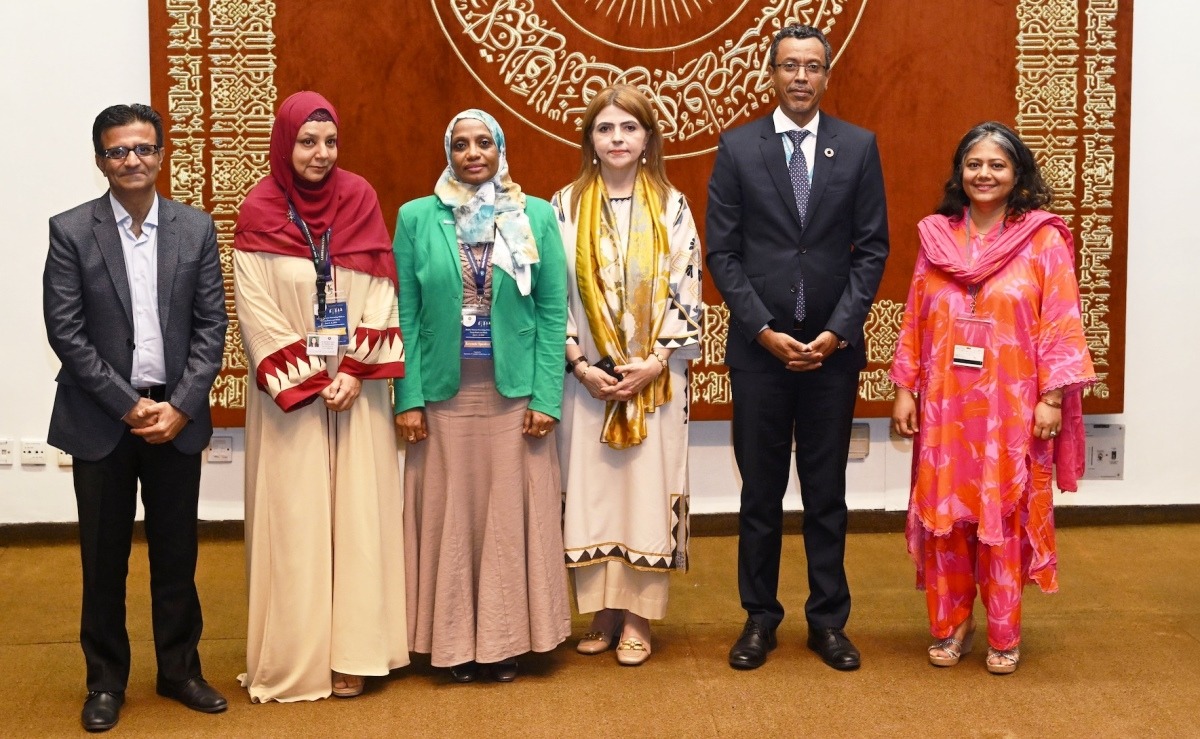The Aga Khan University’s Department of Community Health Sciences (CHS) has kicked off a three-day conference to discuss and resolve adolescent health issues, with participation from the World Health Organization (WHO) and United Nations Children’s Emergency Fund (UNICEF). The conference, titled “Healthy Futures: Preventing Non-Communicable Diseases (NCDs) in Young Hearts and Minds,” sheds light on critical and under-discussed topics such as screen time, obesity, substance use and abuse, mental health problems, sedentary lifestyles, educational curricula, and lifestyle innovations that must be implemented on a large scale to counter these problematic trends.
Chief Guest Dr Fouzia Khan, Chief Executive Advisor, School Education Department, Government of Sindh said, “Encouraging young people to live a healthy and active lifestyle requires massive efforts on behalf of their parents, teachers, and other social institutions. Acknowledging the current state of our youth is the first step towards lifestyle modifications towards a better future.”
The three-day conference includes research presentations, panel discussions, plenary talks, and a variety of other activities designed to encourage dialogue among academic experts, healthcare professionals, and teachers alike.
Dr Lamia Mehmud, Regional Adviser Non-Communicable Diseases Prevention at the World Health Organisation (WHO) said, “A coalition of pioneering health faculties with local governments and grassroots mentors is what we need to get to our young people. It’s vital for our young ones to enjoy their lives, but we need to teach them how to avoid risking their wellbeing for the sake of fun or comfort.”
Adolescents comprise one-fifth of the Eastern Mediterranean Region’s population, representing a critical developmental stage. WHO emphasizes prioritizing adolescent health to combat non-communicable diseases (NCDs), responsible for over half of disability-adjusted life years (DALYs) and 20% of deaths among those aged 10-19. The Youth Health Council engages youths in NCD prevention strategies.
Aside from research and dialogue discussions, the conference also provides an opportunity for young people to explore and engage in informative activities and exhibits about non-communicable diseases, their consequences, and how these adolescents and young adults can significantly improve the quality of their health by making small lifestyle changes.
Abdullah A. Fadil, UNICEF’s representative in Pakistan, stated that it’s critical to connect and relate to our pre-teens and teens rather than leaving them in silos. “Non-communicable diseases (NCDs) are among the top three causes of death for children aged 10-14 in Pakistan and are the leading cause of death for girls between the ages of 15 and 19. There is an urgent need for parents, caregivers, teachers, mentors, and young people themselves to prioritize physical and mental health of adolescents.
To safeguard young hearts and minds from NCDs, several actions can be taken immediately by individuals and educational institutions. These include: increasing physical activity and decreasing screen time; choosing more nutritious foods and limiting substance use; allocating more resources to mental health services; reducing air pollution; and incorporating age-appropriate climate change, mental health and physical education in the national curriculum.”
The conference also emphasizes the importance of tackling NCDs in teens, which requires attention from governing bodies and the scientific community, as well as pressing concerns such climate emergencies and the availability of public spaces.
Dr Romaina Iqbal, Section Head NCD and Mental Health, Department of CHS, said “Evidence suggests that 70% of the poor habits that lead to NCDs later in life are developed during adolescence. The Aga Khan University is ever ready and willing to play its role in educating adolescents about the dangers of sedentary and unhealthy lifestyles. With promising collaborations between public and private entities, we are sure we can divest our young population from wasting their lives in unhealthy engagements.”
Prof. Zainab Samad, Chair Department of Medicine, said that “Prevention is better than treatment. Poor diet, physical inactivity, tobacco consumption, climate change and poor mental health are all associated with the development of NCDs in the Pakistani population. It is therefore important to modify all these factors so that we can prevent the development of NCDs”.


